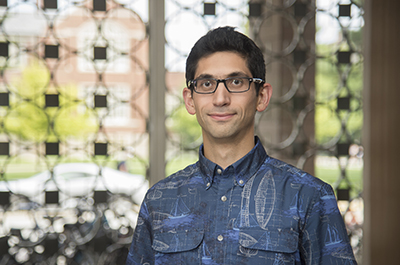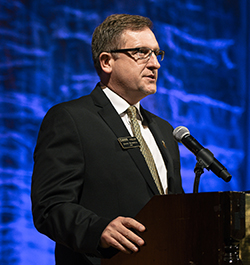New Faces
Krannert faculty roster continues to expand
These brief profiles of new members of the faculty and teaching staff at Purdue’s Krannert School of Management for fall 2016 are meant to serve as an introduction and welcome. For more information on the school’s latest additions to the faculty, visit www.krannert.purdue.edu/faculty.
DEPARTMENT OF ECONOMICS
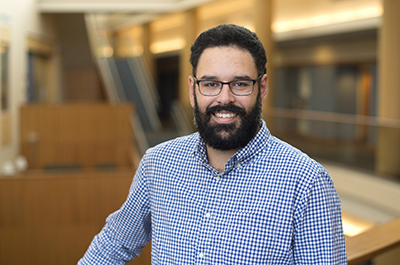 Evan Calford
Evan Calford
Evan Calford joined Krannert this fall as an assistant professor in economics. He earned his PhD from the University of British Columbia in Vancouver. His thesis topic was “On Ambiguity Aversion in Game Theory.” Along with teaching experience, Evan served as a research economist with the Australian Bureau of Agricultural and Resource Economics. His interests are in experimental economics, behavioral economics and game theory.
Teaching Philosophy: “My main goals when teaching a class, particularly at the undergraduate level, is to foster a lasting interest in economics amongst the students and to provide the students with the tools to think critically, using an economic framework, outside the classroom. I would consider a course to be a success if the students leave my classroom with an understanding of the role of incentives in shaping ‘real-world’ behaviour, and if students were able to identify and critically evaluate the effects of a range of policy positions.”
Farid Farrokhi
Farid Farrokhi joins Krannert as an assistant professor of economics. He earned his PhD in economics from Pennsylvania State University and an MS in economics from Sharif University of Technology in Tehran, Iran. Farid has teaching experience at the undergraduate and graduate level in Intermediate Microeconomics and Macroeconomics and Introduction to Economics courses. His primary focus is international trade. He also has interest in industrial organization, natural resources and economic geography.
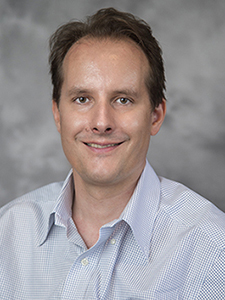 David Gill
David Gill
The Department of Economics is fortunate to have David Gill joining the staff as an associate professor. He was an associate professor in economics, the Roger Van Noorden Fellow in Economics at Hertford College, an associate member of the Nuffield Centre for Experimental Social Sciences and editorial board member of the Oxford Economic Papers at the University of Oxford. He earned his PhD in 2005 from the University of Oxford (Nuffield College), a postgraduate certificate in Academic Practice in 2009 from the University of Southampton, a postgraduate diploma in European Commission Competition Law from the University of London King’s College, and an MPhil degree in economics from the University of Oxford. He is well published and has extensive graduate and undergraduate teaching experience. He has supervised numerous graduate students. His research interests are microeconomics theory, game theory and experimental economics.
Research Statement: “I am an applied microeconomist who uses game theory and experiments to understand how people and firms behave. My research intersects with labor economics and industrial organization. More specifically, I am interested in: incorporating empirically motivated and psychologically more realistic assumptions into formal models of behavior; developing testable predictions of the formal models when people or firms interact; and using laboratory experiments to test these predictions. The goal is to identify empirically important deviations from traditional microeconomic assumptions that help to explain economic behavior and guide policymakers.”
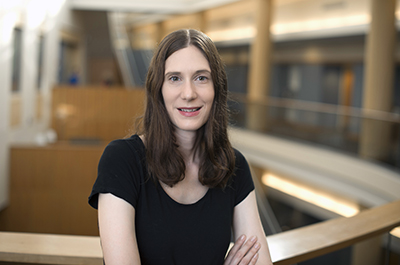 Victoria Prowse
Victoria Prowse
Victoria Prowse comes to the Department of Economics from Cornell University as associate professor and Magner Chair. She earned her PhD from Oxford University (Nuffield College) in 2007. She has teaching experience at the graduate and undergraduate levels as well as advising of both PhD and master’s graduate students. She is well published and has numerous research grants. She specializes in empirical microeconomics — labor, public and experimental.
Research Statement: “I am an empirical microeconomist who uses observational and experimental data to advance our understanding of labor supply. In one stream of research, I design and run laboratory experiments to investigate labor supply behavior. In a second stream of research, I use observational data to understand how the labor supply of individuals and households responds to social insurance, social assistance and pension policies. I then leverage the results to identify effective policy reforms.”
 David Perkis
David Perkis
David Perkis joins the Department of Economics as a visiting assistant professor and director of the Purdue Center for Economic Education (PCEE). David earned his PhD from Purdue and MS from Krannert. He remains a Boilermaker, coming from the College of Agriculture where he was teaching in the Department of Agricultural Economics. He has an engineering patent and has published numerous papers and reports. His interests are in energy and resource economics, environmental economics and sustainability, public policy, price controls in pollution markets, trading behavior in markets and economic education.

